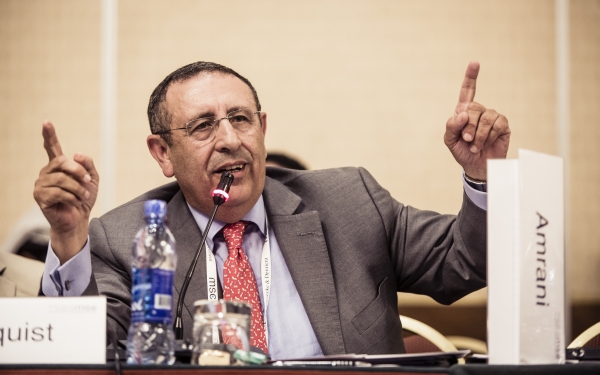
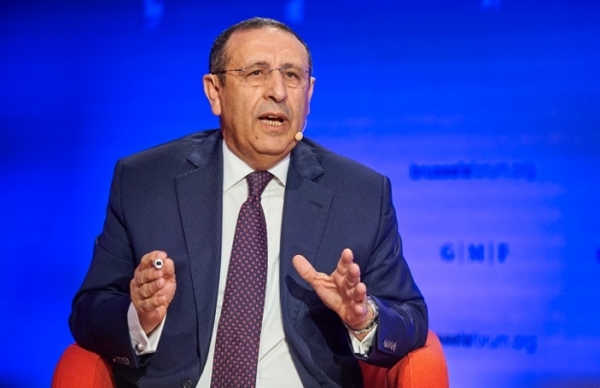
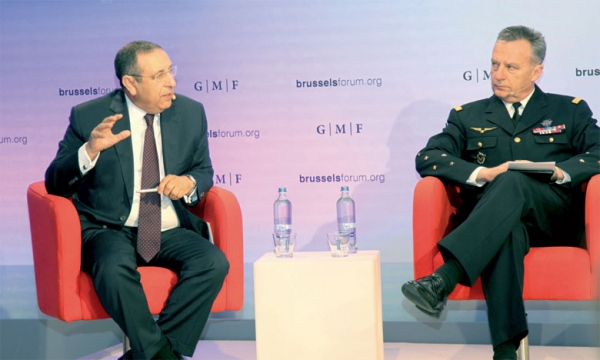
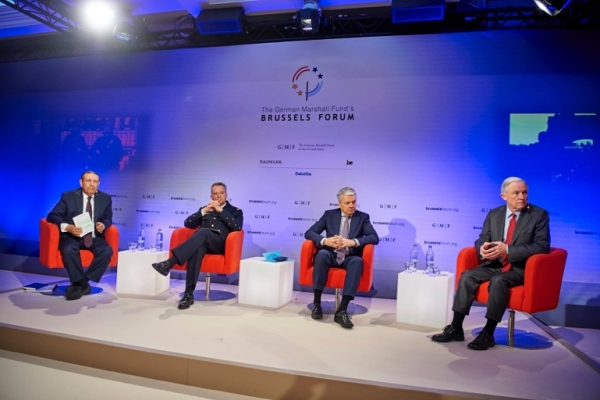
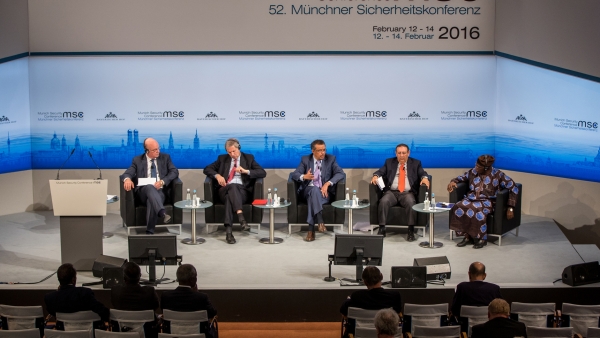
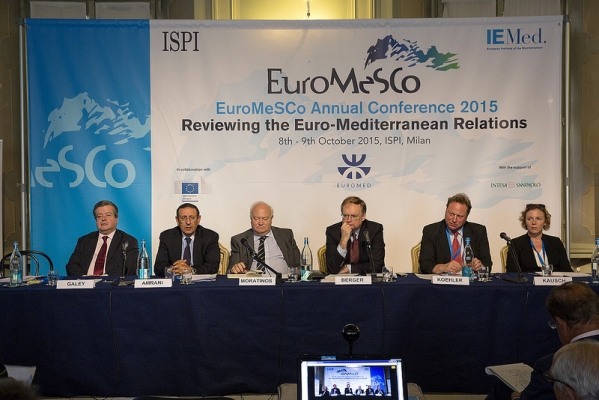
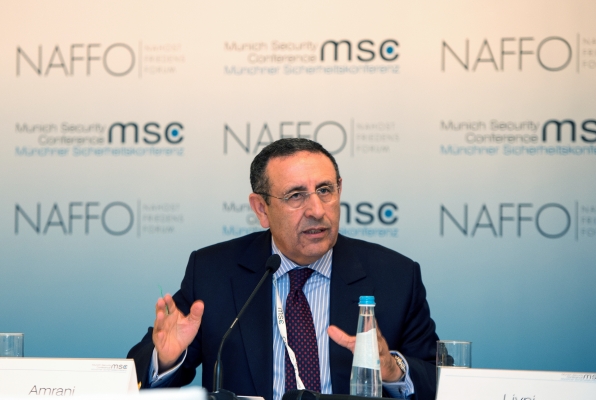
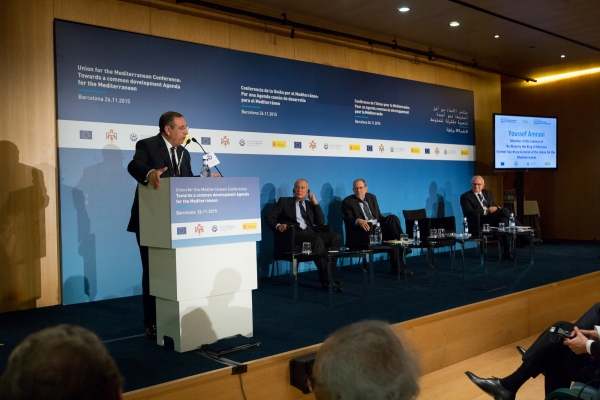
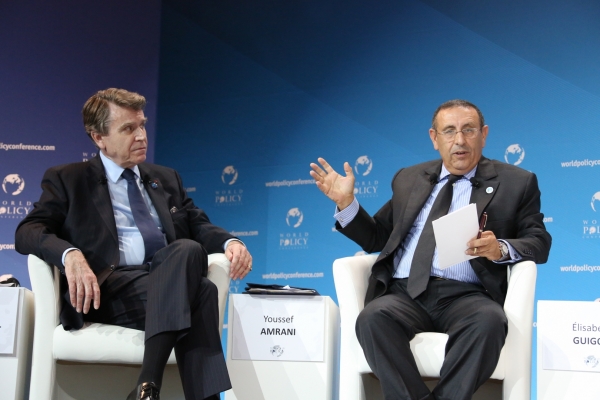

Excellencies, Ladies and Gentlemen.
First and foremost, I would like to thank the Italian Foreign Minister, as well as Marta Dassu.
We are gathered here today to deepen and widen the relations between Europe and America. I would like to seize this opportunity to recall that in 1777, Morocco was the first country to recognize the Independence of America and to conclude a peace, and a MFN (Most Favored Nation) trade and maritime protection. This was the first treaty ratified by the Congress and the longest lasting agreement ever concluded by the USA.
In 2009, Morocco launched an initiative in the Atlantic space as a step forward towards new paradigms of geopolitical governance. This initiative comes with the view of promoting security and stability, as well as shared prosperity through innovative approaches and tools.
Morocco is linked with the EU and the USA, as well as with certain African countries, by the FTA’s. It has provided the opportunity for open dialogue with the MERCOSUR and the Caribbean, aimed at building bridges of lasting partnership and highlighting available business opportunities.
Undoubtedly, these few examples only come to confirm the deep believe and pertinence that Morocco has of the Atlantic vision.
This vision of the Atlanticis is shared by many important players. A strong consensus has emerged during the last meeting held in Skhirat, in November of this year that centered on the following points:
– An urgent need to promote strategic relations based on shared values, common objectives and innovative approaches, that will allow us to face the common threats and challenges;
– The approaches to identify are to be based on targeting top priorities, such as Food and energy security, movements of persons, shared knowledge, in order to implement new governance patterns that focus on the human dimension of development. The identified patterns would involve the participation of NGO’s, Business communities, and civil societies in the formulation and implementation of the projects.
– A need to create new bureaucracies, which will service theses common objectives. Being innovative means relying on networks, taking advantage of existing multilateral institutions, and hence avoiding the re-invention of the wheel.
– The focus has also been put on the economic crisis in the EU, theUSA as well as other regions, and the opportunity it provides us with. A coordinated approach to overcome the after math of this crisis is highly desirable and possible. The dynamics shown by African and Latin American countries is a source of mutual learning, common remedies and significant assets provided to the international community to fight against unemployment and promote growth.
– The Sahel and the recent events of the region, the growing insecurity in the Guinea Golf, the sprout of all kinds of trafficking and different networking connections between terrorists and Jihadists, all re-enforce the need for a holistic approach and a collective endeavor. This would mean the involvement of global actors, different regional bodies, in addition to like-minded entities of common projects that promote shared data and information.
In terms of security, ladies and gentlemen, you are all very aware that the African Atlantic space has experienced an increase in threats emanating from theAtlantic. Drug trafficking, piracy, armed robberies at sea, and arms trade have all plagued many states of the region’s economies and threatened their security.
Signs of a very disturbing nexus have become more and more apparent, forming between narco-trafficking on the Atlantic and terrorist groups in theSahelregion. And on this issue, we can only rejoice in seeing that the terrorist threat is being robustly tackled inMali, and we welcome these efforts.
Many initiatives have seen the light of day, in order to address the challenges at the sub-regional and trans-regional level, in a coordinated and efficient manner.Moroccois proud to have hosted in 2009 and 2010 the first and second Ministerial Conference of African Atlantic States, which regroups countries from thestraitofGibraltar(Morocco) all the way down to the Cape (South Africa). The conference aims at promoting both inter-regional and trans-regional cooperation on security and development issues, in the spirit of South-South cooperation for greater prosperity and stability of the African Atlantic space.
To conclude, ladies and gentlemen the coincidence between yesterday’s meeting and today’s event is not a pure hazard.Moroccois more than willing to further work with its 21 other partners in this initiative, to reinforce cooperation and coordination on the basis of the Action Plan adopted inRabat, and explore means and ways of enhancing trade and exchanges amongst each other.
Part of the solution towards a UN system reform relies on the promotion of this sort of regional approach for global governance. This entails more dialogue, more solidarity, and more cooperation within the space; a space where history, common interests and challenges, are assets to be used and mobilized.